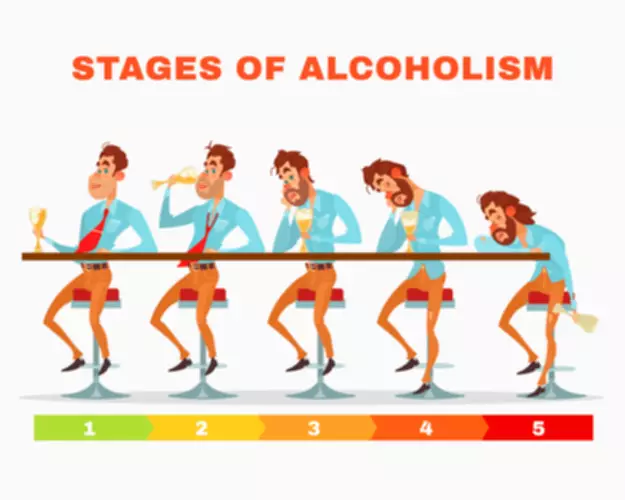
Policy suggestions suggest that packaging alcoholic beverages with pregnancy warning labels should develop and include a pictogram and relevant warning statement as a mandatory requirement. Women of childbearing age should receive more education on pregnancy prevention and family planning using effective contraceptive tools. One of the primary cognitive challenges individuals with fetal alcohol syndrome face is intellectual disabilities and learning difficulties. These individuals may have below-average intelligence, with varying degrees of severity.
If you drink during pregnancy, you place your baby at risk of fetal alcohol syndrome. Some parts of the clinical guideline were adapted from the Canadian guideline for diagnosing FASD. The Canadian guideline also gives advice based on the opinion of professionals who have experience of identifying and assessing children and young people who have been exposed to alcohol during pregnancy. Infants with FAS often are irritable, overly sensitive to noise, behind in their development, have trouble eating and sleeping, have too little or too much muscle tone, and don’t like to be held. If a child exhibits these symptoms or the other problems mentioned above and the mother drank alcohol during her pregnancy, a trained medical professional can evaluate the child for FAS. Doctors typically rely on these symptoms and evaluations of intelligence and language development to help make a diagnosis.
How early can you tell if your child has fetal alcohol syndrome?
The most severe type of FASD — fetal alcohol syndrome — may cause distinctive facial features. The risk for potential fetal alcohol syndrome is established during the first prenatal visit. Pregnant women are questioned regarding behavioral risk factors, including illicit drug usage, alcohol consumption, smoking, and other high-risk behaviors. Several screening questionnaires may be utilized; these include (1) T-ACE, (2) TWEAK, and (3) AUDIT-C. There are several laboratory blood studies that may indicate recent use or repeated fetal alcohol signs and excessive alcohol abuse. Efforts to address and prevent fetal alcohol syndrome in adults are supported by various public health initiatives and resources.
What is Fetal Alcohol Syndrome (FAS)?
- It’s important to note that not all individuals with FAS will exhibit the same physical signs and symptoms, and the severity may vary.
- Receiving treatment as soon as possible in childhood can help decrease the likelihood of developing these secondary effects in life.
- It’s important to note that not all individuals with FAS will exhibit these facial features, and their absence does not rule out the possibility of FAS.
- Consumption of alcohol during pregnancy may cause fetal alcohol syndrome (FAS).
The common physical signs of fetal alcohol syndrome in adults include small head size, reduced brain size, and small stature. Recognisable facial features are also common, such as small eyes, a thin upper lip, and a short, upturned nose. Additionally, about 90% of adults with fetal alcohol syndrome experience mental health difficulties, including issues with attention, distraction, learning, memory, decision-making, and planning. Fetal Alcohol Syndrome (FAS) is a preventable condition caused by alcohol consumption during pregnancy. It is the most severe condition on the fetal alcohol spectrum disorder (FASD) scale.
Causes and Risk Factors
Impairment of facial features, the heart and other organs, including the bones, and the central nervous system may occur as a result of drinking alcohol during the first trimester. That’s when these parts of the fetus are in key stages of development. No amount of alcohol is considered safe to be consumed during pregnancy. Even if you take a sip of alcohol during pregnancy, your baby can get affected by this syndrome. Doctors can help form a treatment plan to reduce symptoms such as behavioral problems and learning difficulties. Reach out to a healthcare provider if you think a child within your care might have fetal alcohol syndrome.
The families of people with FAS should also be included in treatment interventions. Because many people do not know they are pregnant during those first few weeks, the risk of FAS increases if you drink alcohol and have unprotected sex. However, most studies have not researched FAS symptoms in people over the age of 30. Alcohol in the mother’s blood passes to the baby through the umbilical cord.

These cognitive and behavioral signs and symptoms can significantly impact an individual’s daily life, relationships, and overall functioning. Keep in mind, however, that drinking alcohol during pregnancy doesn’t necessarily mean that a baby will have FAS. Genetics, nutrition and environmental factors can all influence what effect alcohol has on a fetus. These complications can Substance abuse be due to underlying neurodevelopmental disorders.

Fetal alcohol spectrum disorder is often called a hidden disorder because the majority of people with it have no outward signs of disability. Their learning and behavioural challenges are often mistaken for other disorders or problems. If you drink while you’re pregnant, you’re putting your unborn baby at serious risk of fetal alcohol syndrome and the array of complications that come with it.

Preventing fetal alcohol syndrome

Individuals who are pregnant or trying to become pregnant should avoid consuming any amount of alcohol. People with FAS may also have a distinctive philtrum, which is the groove between the bottom of the nose and the top of the upper lip. Some individuals with FAS may have a philtrum that is smoother than average. Find a brighter tomorrow by starting with our compassionate team of medical professionals and recovery specialists today. Supportive employment programs, vocational training, and job coaching can help individuals with FAS overcome these challenges and find meaningful employment opportunities. From the What to Expect editorial team and Heidi Murkoff, author of What to Expect When You’re Expecting.

Diagnosis in adults
This might prevent nutrition and oxygen from reaching the fetus’s vital developing organs. This nutrition and oxygen deficiency can affect the development of tissues and organs and can also result in permanent brain damage. To diagnose someone with FAS, the doctor must determine that they have abnormal facial features, slower than normal growth, and central nervous system problems. They might present as hyperactivity, lack of coordination or focus, or learning disabilities.
- We also discuss how people can prevent FAS and when to see a doctor.
- From the What to Expect editorial team and Heidi Murkoff, author of What to Expect When You’re Expecting.
- Individuals with FASDs may experience a wide range of symptoms or secondary conditions.
- Seek medical care if you are pregnant or planning pregnancy and cannot stop drinking.
- During those early weeks of pregnancy, the fetus is going through a massive surge of development.
What’s the difference between fetal alcohol syndrome (FAS) and fetal alcohol spectrum disorders (FASDs)?
- Trusted SourceCenters for Disease Control and PreventionFetal Alcohol Spectrum DisordersSee All Sources 3 The most recent CDC study found 0.3 out of 1,000 children ages 7 to 9 years old have FAS.
- If you did drink any amount of alcohol during pregnancy, it’s important to know that your healthcare provider and your baby’s pediatrician need to know to help you plan for your child’s future.
- Depending on the symptoms a child with FAS exhibits, they may need many doctor or specialist visits.
These can manifest as below-average height and weight, as well as delays in reaching growth milestones. It’s worth noting that growth deficiencies can vary in severity among individuals with FAS. Teens with FASD are also at increased risk of mental health issues, such as depression, eating disorders, and suicidal ideation.
